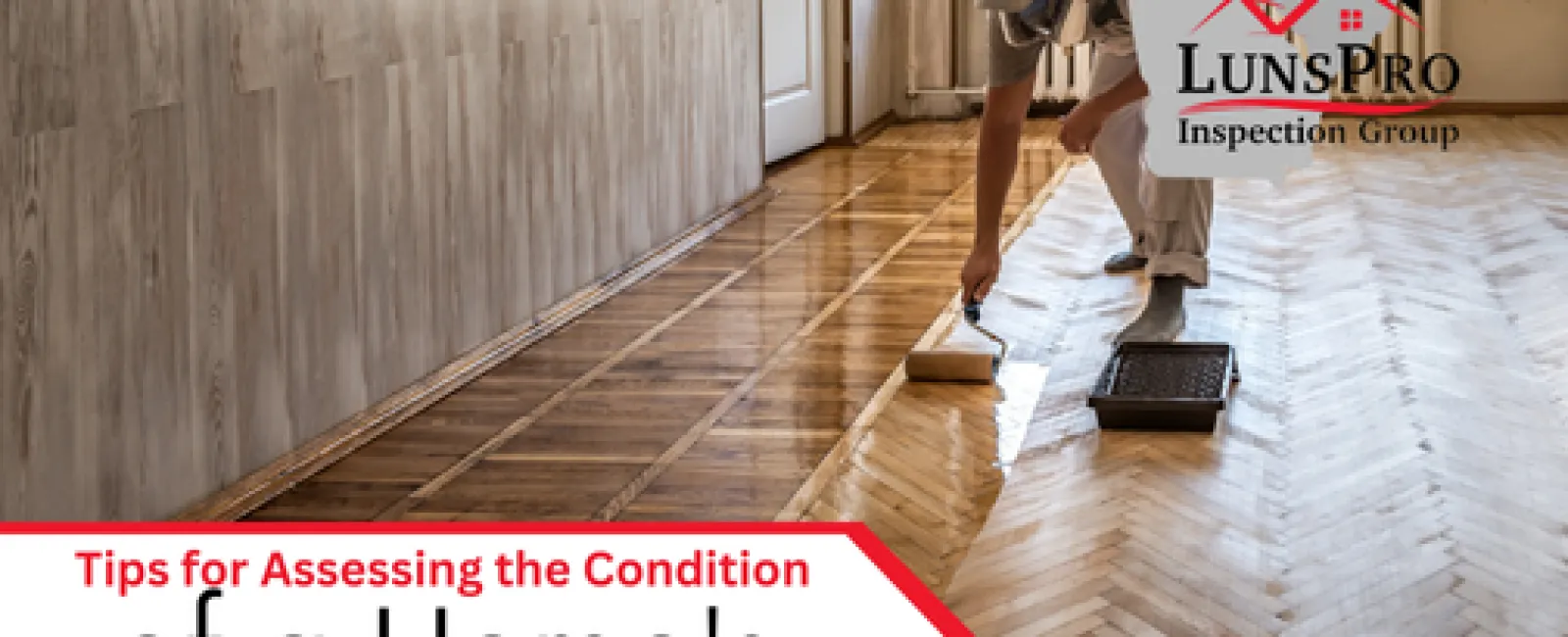When purchasing a home, the flooring is one of the most noticeable and essential components to evaluate. Flooring not only affects the aesthetics of the home, but it also plays a key role in its overall structural integrity and long-term value. Many homebuyers, however, overlook this crucial aspect during their inspections, which could lead to costly repairs down the line. In this article, we will provide valuable tips for assessing the condition of a home's flooring to ensure you're making a well-informed decision. Whether you're a homeowner looking to maintain your property or a buyer ready to invest, these insights will help you avoid potential hazards.
Flooring is not just about aesthetics; it's about safety, comfort, and the longevity of the home. Flooring problems can be indicative of more significant structural issues, moisture problems, or even pest infestations. As a buyer, seller, or even a homeowner, understanding how to properly assess flooring can save you from unforeseen expenses.
This article is geared toward both residential and commercial properties across Carolina, including popular areas like Charlotte, Raleigh, and Greensboro. Whether you're a Carolina home inspector, a property buyer, or a homeowner, following these tips will help you understand how to evaluate flooring properly. LunsPro Inspection Group offers a comprehensive approach to flooring assessments as part of our Carolina residential and commercial inspections, ensuring that no detail is left unchecked.
1. The Importance of Flooring Inspection
Flooring inspection should be an essential part of any home inspection. Whether it's hardwood, tile, laminate, or carpet, every type of flooring requires specific care and has unique signs of wear and tear. Damage to flooring is not always visible on the surface, and what might appear to be a minor issue could indicate underlying problems such as water damage, structural instability, or improper installation.
As a Carolina home inspector, it is essential to assess the type and condition of flooring thoroughly. Different types of flooring behave differently under various environmental conditions, and what works in one area may not be ideal in another. For example, wood floors in coastal areas like Charlotte might experience more humidity-related problems than those in drier inland areas like Greensboro.
2. Hardwood Flooring
Hardwood flooring is one of the most desirable types of flooring due to its durability and aesthetic appeal. However, it can be prone to several issues if not correctly maintained. Look for signs of warping, which can occur due to moisture problems. This is especially prevalent in areas with fluctuating humidity levels, like Raleigh and Charlotte. Warping can lead to uneven surfaces, making the flooring unsafe. As part of Carolina home maintenance, periodic checks of hardwood flooring should be performed to identify any warping or cracking.
Scratches and dents are also common problems with hardwood floors. These can sometimes be repaired, but extensive damage may require entire sections to be replaced. Flooring that feels spongy underfoot may indicate damage beneath the surface, such as water leaks or even pest infestations, which could pose serious home hazards.
It's crucial to examine the edges of the floorboards for gaps or signs of movement, as these can signal poor installation or an underlying structural issue. A thorough home inspection, including Carolina wiring inspections, is recommended to ensure that no other systems are being affected.
3. Tile and Laminate Flooring
Tile and laminate flooring are popular for their durability and low maintenance, but they are not without their challenges. Tiles can crack due to poor installation, heavy foot traffic, or underlying structural movement. When assessing tile flooring, look for cracked or loose tiles. Loose tiles can signal improper installation or movement in the foundation, a significant concern for both residential and commercial properties.
Grout is another important aspect of tile flooring. Damaged or missing grout can allow moisture to seep under the tiles, leading to mildew or mold growth—a critical home hazard. At LunsPro Inspection Group, we emphasize the importance of proper grout maintenance as part of Carolina home maintenance, especially in areas prone to moisture.
Laminate flooring is often seen as a cost-effective alternative to hardwood, but it can be prone to water damage, especially in high-moisture areas like kitchens and bathrooms. Swollen or warped boards are clear signs of moisture infiltration, and this can occur from spills, leaks, or even high humidity in the environment, which is common in cities like Charlotte and Raleigh.
4. Carpeted Floors
Carpets can hide a multitude of problems. While they might look clean on the surface, they can conceal stains, mold, or pests. During a flooring assessment, lift the edges of the carpet to check for signs of mold or water damage, particularly in basements or near entryways. Carpet padding can retain moisture, and if it's not properly dried, it can lead to the growth of mold or mildew.
Carpets in high-traffic areas are also susceptible to wear and tear. Thin spots or areas where the carpet feels lumpy can indicate that the padding has deteriorated. It's essential to include carpeted areas in the inspection, especially in homes that have older carpets or have been subjected to moisture issues.
5. Specialized Flooring Assessments Using Drone Technology
One of the advantages that LunsPro Inspection Group offers in the flooring inspection process is the use of Carolina drone inspections. This advanced technology can provide a more comprehensive view of the overall condition of a property, including hard-to-reach areas where flooring might be affected by structural issues. Drones are particularly useful in commercial buildings or large residential properties in cities like Greensboro, where traditional methods might miss crucial areas of concern.
6. Signs of Moisture Damage
Moisture is one of the most significant threats to a home's flooring. Whether it's hardwood, tile, or carpet, moisture can cause severe damage, leading to warping, mold growth, and structural problems. In areas like Raleigh, which experience significant rainfall, ensuring that flooring is resistant to moisture is crucial.
Look for signs of water damage, including discoloration, soft spots, or an unpleasant odor, which might indicate mold growth beneath the flooring. In these situations, a more thorough investigation of the home's plumbing system and waterproofing solutions is recommended. It's also wise to include an inspection of the electrical wiring, as Carolina wiring inspections help to ensure that no moisture has infiltrated critical areas of the home's systems.
Assessing the condition of a home's flooring is an essential part of maintaining a safe and valuable property. Whether you're buying, selling, or maintaining a home, understanding the potential issues related to flooring can prevent future problems and preserve the integrity of your investment. LunsPro Inspection Group takes pride in offering thorough Carolina residential and commercial inspections that include a detailed assessment of flooring conditions. By following the tips outlined above, homeowners and buyers in Charlotte, Raleigh, and Greensboro can ensure that their properties remain safe, comfortable, and free from costly repairs.
Don't overlook the importance of flooring during your next home inspection. Reach out to a Carolina home inspector from LunsPro Inspection Group today, and let us help you identify and address any issues that could compromise your home's safety and value. After all, a well-maintained floor is the foundation of a safe and welcoming home.

